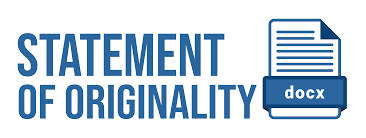Voices Unveiled: Law Students Speak Out on the Vital Significance of ESP Courses in Legal Education
DOI:
https://doi.org/10.61672/eji.v8i1.2682Keywords:
ESP, English for Law, Law Students, Tertiary EducationAbstract
This study embarks on an exploration of the paramount significance of English for Specific Purposes (ESP) courses tailored for law students. A total of 40 second semester students taking ESP for law students at Universitas Merdeka Pasuruan participated in the survey after completing foundational legal English courses. Respondents were instructed to complete the questionnaires in 30 minutes to an hour to ensure a careful consideration of all survey issues before responding. The majority of respondents (33 students) expressed a high degree of agreement regarding the importance of ESP courses in enhancing their language proficiency. 55% or 22 students indicating highly content and 38% or 15 students expressing total satisfaction with the materials of the English for law class. 50% or 20 students stated that speaking is the most difficult skill among other 3 English skills. Essentially, it is advisable to mandate that students acquire a foundational understanding of legal knowledge before delving into the study of English for law. While law major needs to master the law paradigm, it is imperative when instructing an English for law class, instructors furnish information about their respective law concept.
References
Boroujeni, S. A., Fard, F. M., & In, M. A. (2013). A Needs Analysis of English for Specific Purposes (ESP) Course For Adoption Of Communicative Language Teaching :( A Case of Iranian First-Year Students of Educational Administration). International Journal of Humanities and Social Science Invention ISSN, 2(6), 35–44. www.ijhssi.org
Fadel, S., & Rajab, H. (2017). Investigating the English Language Needs of the Female Students at the Faculty of Computing and Information Technology at King Abdulaziz University in Saudi Arabia. English Language Teaching, 10(6), 69. https://doi.org/10.5539/elt.v10n6p69
Faez, F., Karas, M., & Uchihara, T. (2019). Connecting language proficiency to teaching ability: A meta-analysis. Language Teaching Research, 1–24. https://doi.org/10.1177/1362168819868667
Liu, Y., & Hu, G. (2021). Mapping the field of English for specific purposes (1980–2018): A co-citation analysis. English for Specific Purposes, 61, 97–116. https://doi.org/10.1016/j.esp.2020.10.003
Łuczak, A. (2017). Using Memrise in Legal English Teaching. Studies in Logic, Grammar and Rhetoric, 49(1), 141–152. https://doi.org/10.1515/slgr-2017-0009
Mahbub, M. A. (2018). English Teaching in Vocational High School: A Need Analysis. Journal of English Education and Linguistics Studies, 5(2), 229–258.
Poedjiastutie, D., & Oliver, R. (2017). Exploring Students’ Learning Needs: Expectation and Challenges. English Language Teaching, 10(10), 124. https://doi.org/10.5539/elt.v10n10p124
Rachmawati, D. L., Hastari, S., & Dwiharto, J. (2021). Need Analysis to Create a Better Instruction and Material for ESP Management Students. 4(3), 283–297.
Rachmawati, D. L., Purwati, O., & Anam, S. (2022). ESP Teachers’ Sociocultural Challenges in Online Formative Assessment: Voices of Teachers, Learners, and Coordinators. Call-Ej, 23(1), 150–167.
Salmani-nodoushan, M. A. (2020). English for Specific Purposes. English for Specific Purposes, 7(1), 247–268. https://doi.org/10.25264/20.05.2020
Serafini, E. J., Lake, J. B., & Long, M. H. (2015). Needs Analysis for Specialized Learner Populations: Essential Methodological Improvements. English for Specific Purposes, 40, 11–26. https://doi.org/10.1016/j.esp.2015.05.002
Downloads
Published
Issue
Section
License
Copyright (c) 2024 Dwita Laksmita Rachmawati, Dwi Budiarti

This work is licensed under a Creative Commons Attribution 4.0 International License.




















